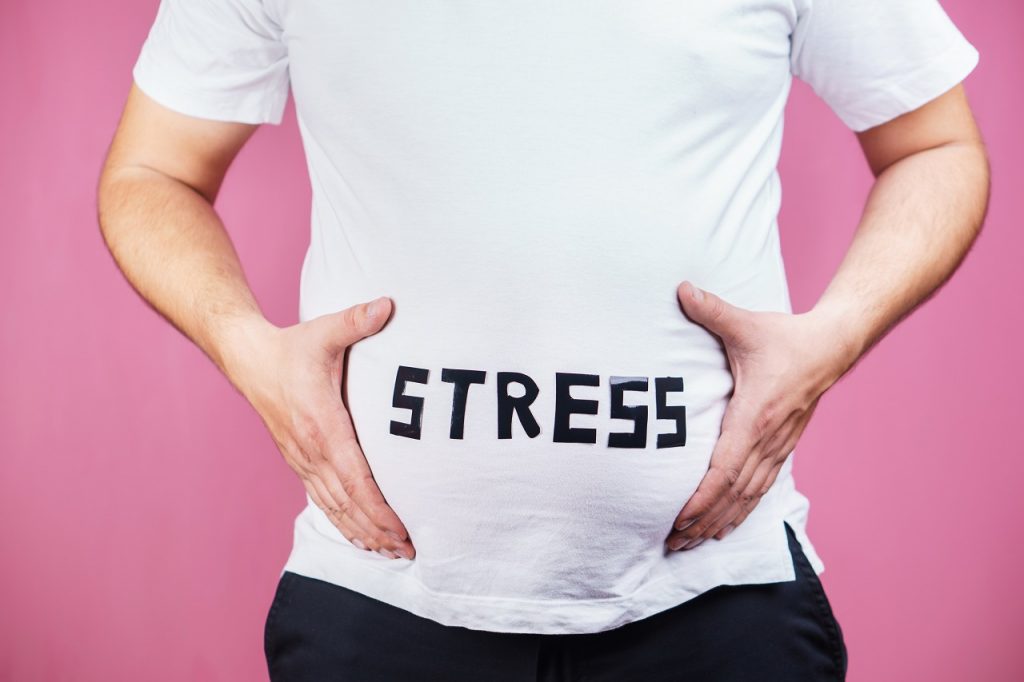
Have you been regular with your daily exercises and have maintained a healthy diet but you’re still not able to get rid of those extra inches on your waistline? Much to your surprise, the major reason for this may be stress! Yes! Stress! This can be the criminal putting those extra notches on your belt. Well you would say who doesn’t have stress these days? And you are right! Feeling stressed is an increasingly common problem. As long as the graph is small in height, it is fine. But how is it that stress affects your waistline? Let’s find out!
What happens when we feel Stressed?
When we are stressed, our body goes into “fight or flight mode”. Stress hormones, including adrenaline and cortisol, are released to help us respond to the ‘danger’, our heart pumps faster, muscles contract and our senses become sharper. Too much stress can constantly have our body in fight or flight mode and that can be a problem.
In limited doses, stress helps us stay focused, energetic and alert. But high levels of stress can lead to feeling anxious, depressed and result in many medical concerns like cardiovascular issues, damage to the immune system, Type 2 Diabetes and cause weight issues as well, to name a few.
How Stress Affects Your Waistline
Glycogen is the energy stored in our liver, primarily sourced from carbohydrates. When cortisol is released, glycogen is released to give us extra energy to ‘get away from stressful situations’.
We have glycogen receptors in our body and they are increased when we face high levels of stress, especially the ones located around our abdomen to protect our vital organs. Glycogen is being released to provide energy, but if not utilized, it is stored around our waistline, causing the inches to rise.
When stress levels increase, so does the production of the stress hormone, cortisol.
And you unknowingly start facing the following:
- Making bad food choices and increasing the fat cells in the body.
- The stress hormone cortisol can lead to sugar levels dropping down and makes you less sensitive to insulin.
- Increases the appetite which gives you those hunger pangs. Which means you are more likely to reach out to burgers or pizzas which are calorie dense junk foods that quickly satisfy your hunger and you feel good. Hence, stress can cause you to eat more than required.
- Constant high levels of stress can cause increased levels of fat cells and the rate at which the body stores fat also goes up which leads to weight gain.
How Can You Control It?
- Indulge in Exercise: It’s the best way to relax your body and mind
- Take a few deep breaths: It can take the pressure off you right away
- Balanced meal: Consult your GOQii Coach to help you make right food choices. Never skip a meal as it can actually worsen the situation
- Say no to caffeine: Since it increases the production of the stress hormone.
- Drink plenty of water: Dehydration can cause increased production of cortisol
- Avoid processed foods: They can affect your gut microbiome, stress response and energy levels
- Sleep well: Sleep deprivation and chronic stress can play havoc with the production of the stress hormone.
We hope this article on how stress affects your waistline helps you! Do leave your thoughts in the comments below. For more on stress management, check out Healthy Reads or ask a GOQii Coach by subscribing for Personalised Health Coaching here.
#BeTheForce
Disclaimer: The information provided in this blog is for general awareness and educational purposes only. It is not intended to replace professional medical advice, diagnosis, or treatment. Always consult a qualified healthcare provider for personalised medical guidance or concerns related to your health.




Very well and scientifically explained. Looking forward to more of such informative piece. Thank you🙂
Wow that was of great help! Thank you Shagufta
Very informative. Will definitely follow these tips
Nice article. Cortisol and fats , that’s nice to know.